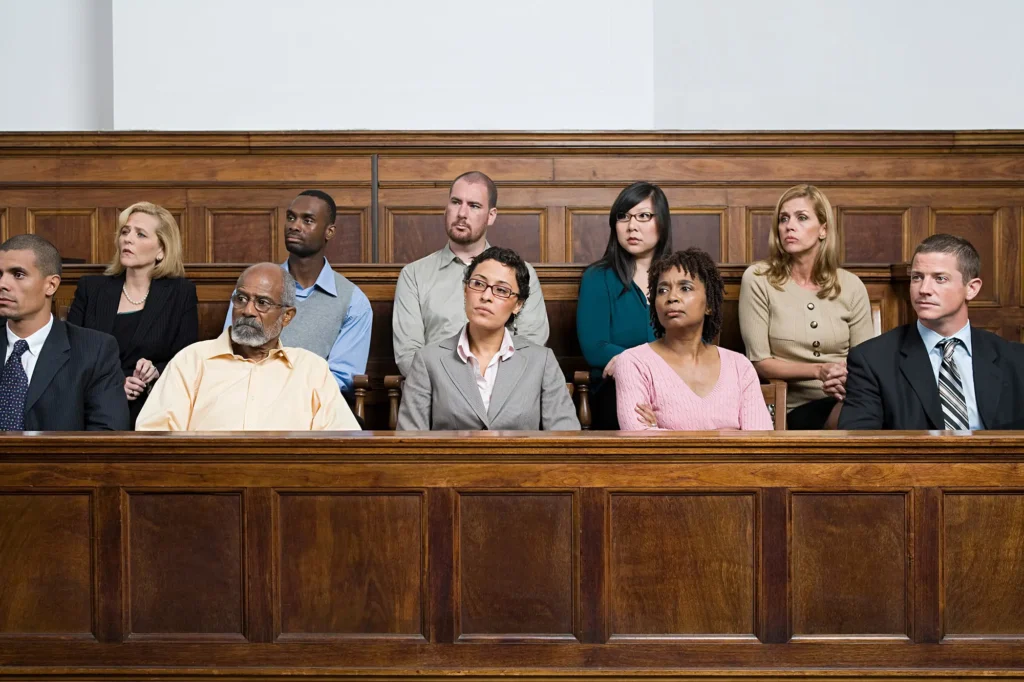CHICAGO, IL – If you’ve been summoned for jury duty, you may not be too thrilled; however, you serve an extremely important role in the court of law and ensuring justice is served. Not only is it a civic responsibility and legal obligation, but is one of the highest duties of American citizenship. While it may be an inconvenience, not everyone has the right to serve on a jury.
Who can serve as a juror?
To be eligible for jury service, you must be an American citizen, at least 18 years of age, a resident of the county you were summoned in, the ability to read, write and understand the English language. Convicted felons may not be eligible for jury service depending on the severity of the felony.
How are citizens selected to serve on a jury?
To be summoned for jury duty in Illinois, you must be a registered voter or had a valid driver’s license, an Illinois Identification Card or an Illinois Disabled Person Identification Card. Eligible citizens can be called once every twelve months.
How long does the jury selection process last?
While in court, you will be asked to take in oath in which you will answer all questions truthfully. A prospective juror may spend one day in court.
Can jury duty be postponed?
If you’re unable to appear on the summons date, you’re able to ask for a postponement to a more convenient date which is normally a few months out from when you were originally summoned. Call the phone number that is listed on the summons and explain why you’re unable to appear.
I’m employed. What do I do now?
Under the law, you are legally protected against employer harassment or from being fired for responding to jury duty service; however, you must notify your employer in advance. Employers are not required by law to pay employees who take time off for jury service, although many employers opt to do so.
What happens if you don’t report for jury duty?
There are consequences if you were summoned for jury duty and don’t appear. You may be held in contempt of court and be fined and/or sent to jail.
How long do trials last?
Every case is different; therefore, the timeline of the trial differs from case to case. Trial may last a few days to a few weeks or months. The judge will inform jury members how long they anticipate the trial lasting.
What are key terms used in trials?
If you have previously served on a jury or will be, you’ll notice key terminology throughout the trial. Here’s a breakdown of the most common terms:
- Plaintiff – A person who brings a case against another in a court of law.
- Defendant – An individual, company or institution sued or accused in a court of law.
- Expert witness – A person who is permitted to testify at trial due to their special knowledge, proficiency or expertise in a particular field that is relevant to the case.
- Petit jury – A jury, typically of twelve people, who try the final issue of fact in civil or criminal cases and pronounce a verdict.
- Re-direct examination – Follows cross-examination by an attorney and is conducted by the part who first examined the witness.
- Rebuttal – The introduction, at an appropriate time during the trial, showing the statements of witnesses as to what occurred are not true.
- Deliberations – The period after evidence has been presented to the jury before they move to a special room to discuss the evidence for the first time heard during the trial to reach a decision or verdict.
- Polling the jury – Practice where jurors are asked individually whether they agreed and still agree to the verdict.
- Sentencing – The judge determines the sentence for someone found guilty of a criminal action including prison, city jail time, a fine, some form of probation or a conditional discharge.



